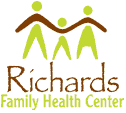Men's Health
Prostate Cancer
The specter of prostate cancer is a worry to many men. Currently, surgery is the primary medical treatment; and is often the only option presented. However, where prostate cancer is concerned, there are definitely some facts you need to know before you consent to any surgical procedure.> Nearly every man autopsied has evidence of prostate cancer - but they died of something else!
> Less than I0% of the men diagnosed with prostate cancer in the U.S. will have their cancer progress to disseminated cancer.
> A landmark Swedish study published in 1992 looked at 223 men with early, untreated prostate cancer. The average age at diagnosis was 72. A 10-year follow-up study showed survival rates similar to those of men who received standard intervention, either radical prostatectomy or radiation. Of the 124 men who died during the decade, only 19 died of prostate cancer.
> Get more than one opinion before you opt for surgery. You will probably not find agreement among the doctors you consult. Willett F. Whitmore, Jr., MD of the Memorial Sloan-Kettering Cancer Center in New York has stated that "optimal management of clinically localized prostatic cancer may be more a matter of opinion, than a matter of fact."
There are now other options besides radical prostatectomy, radiation and castration (whether surgical or hormonal). For one thing, you can choose no treatment. Also, there is a great deal that you can do before and after you develop malignant disease, if you are willing to make changes in your lifestyle and eating habits.
There is now overwhelming evidence that cancer is a disease of nutrition and lifestyle. In fact, the flat statement was made that 75% of all cancer is caused by diet and smoking, with another 3% attributable to excessive sugar intake, 2% attributable to environmental pollution, 4% occupational, 3% alcohol use, 1% medicine and medical practices, and <1% attributable to food additives.
Yet, how many of us worry more about what's been added to our foods than we do about our diet as a whole? (Cancer mortality is more closely linked to sugar consumption than to any other factor.)
> Stop smoking! 75% of all cancer is a matter of diet and tobacco use. Although there is no direct link between prostate cancer and tobacco use, smoking and other tobacco habits eat up whatever anti-oxidants you may be consuming. Since most of us are anti-oxidant deficient, this is counter-productive.
> Eat a diet rich In whole, unprocessed foods, including lots of fresh vegetables, nuts, seeds and grains, using meat as a supplement, rather than the main dish. Unprocessed grains are a rich source of selenium, a powerful inhibitor of tumor cell growth.
> Consume soy products daily. In countries where tofu, miso, soy milk and/or soybeans are a regular part of the diet, the incidence of prostate cancer is minimal.
> Lose weight if you are obese. Obesity negates the effectiveness of other dietary measures.
> Increase your melatonin (a hormone which suppresses the growth of prostate cancer cells) by incorporating good habits. Meditate daily. Keep a regular sleep schedule and sleep in a darkened room (no artificial light). Your room should get morning light, so that your pineal gland will produce adequate amounts of melatonin.
If you already have prostate cancer, then you need professional advice. At the RFHC, working with your oncologist, we will prepare a personalized nutritional program for you based on your individual biochemical profiles in your blood chemistry, and utilizing orthomolecular doses of nutrients. In addition, you will be given a diet that incorporates state-of-the-art anti-cancer knowledge, including eliminating all sugar.
The assistance we provide at the RFHC is considered adjunctive therapy, and is designed to correct nutritional deficiencies, with the emphasis on quality of life. Interestingly, the consensus among the medical doctors at the Florida cancer convention was that denying nutritional support to cancer patients may soon be considered malpractice, since there is overwhelming evidence of nutrition's beneficial effect both on survival time and quality of life.
Call the RFHC for your personalized nutritional evaluation if you are coping with malignant disease.
[see Consent Agreement Concerning Scope of Practice, Nutritional Therapy and Supportive Cancer Care]
Does this apply to you? If so, see our information on Consultations.
[TOP]
© 2011 Richards Family Health Center. This site or any part may not be reproduced without the written consent of Richards Family Health Center. N Rowan Richards, DC, DABCI, FIACA at 242 South Glendora CA 91741. 626 963 1678. email:richardsfhc@richardsfamilyhealth.com. This site is Not intended to dispense health advice or serve as a substitute for actual patient contact with a qualified healthcare provider. Our sole purpose is one of education. It is our expectation that our site can educate our visitors about the efficacy of some healthcare treatments that exist as an alternative to conventional medical wisdom.
PRIVACY POLICY: Richards Family Health Center takes your privacy very seriously. Be assured that we do not sell or rent your contact information to anyone.


